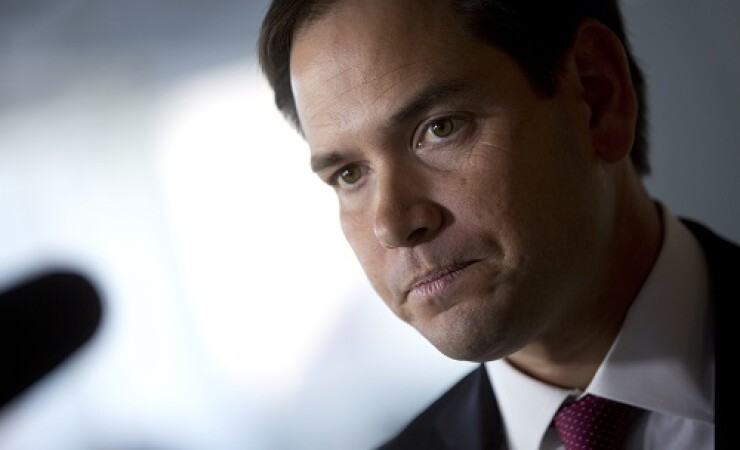The White House’s supplemental funding request, sent to Congress yesterday, aims to pass $40 billion in additional funding measures and includes a $12 billion injection for the Federal Emergency Management Agency’s dwindling Disaster Relief Fund, but some are pushing for it to be considered as a standalone bill over fears that it could be held hostage over the more controversial military aid to Ukraine.
The funding request won’t have a direct impact on munis but how much money FEMA receives will impact issuers to varying degrees and muni advocates are watching to see how politics will shape up this fall as they begin to think about further funding packages.
“President Biden is holding Floridians, and other Americans, hostage by tying critical domestic disaster relief to foreign military aid,” said Sen. Marco Rubio, R-Fla. “While the Biden Administration works with my colleagues in the House on what can actually pass, I urge prompt consideration of legislation to replenish the Disaster Relief Fund.”
Bloomberg News
The package includes $24 billion in military aid to Ukraine, in addition to “numerous requests that should be a part of regular appropriations, and not designated emergency spending,” Rubio’s statement said. Rubio, along with Sen. Rick Scott R-Fla. introduced a bill last month that would provide FEMA with $11.5 billion, and Rep. Jared Moskowitz, D-Fla., introduced his version in the House. Neither have been scheduled for a vote and Congress remains in recess.
Florida lawmakers are at the front of this push for additional FEMA dollars partly because this is all being considered in the heart of hurricane season, and whatever the outcome could impact the state significantly. But they’re not the only ones, as Sen. Susan Collins, R-Maine, put pressure on the Biden Administration to act and expects that to be considered in September, despite others saying the Disaster Relief Fund will run dry in August.
But how FEMA’s funding levels will affect issuers depends on specific needs as well as how it is that such disasters are handled.
Ben Watkins, director of the Florida Division of Bond Finance said that at the state level, they have a lot of experience with disaster relief, as Florida’s Emergency Operation Center handles much of the outreach with FEMA in assessing damages and reimbursements after a storm. Other, smaller city governments with less resources often have to handle, and cover the upfront costs while they wait for FEMA reimbursements themselves.
This could be the beginning of a busy legislative season, as many have already noted that Congress could experience a shutdown on Oct. 1 if lawmakers can’t get their ducks in row on additional government funding. They narrowly avoided a shutdown in June and many lawyers, lobbyists and politicians themselves have noted they may not be as lucky this time around.
“I think it’s gonna be a tricky, tricky endeavor to get anything passed,” said Brett Bolton, vice president of federal legislative and regulatory policy at the Bond Dealers of America. “I’m seeing a lot of noise now that they’ll have to get a lot of Democratic votes.”
He said he’s keeping an eye on the politics of it all as this lays the groundwork for further tax packages, which could include other, more specific muni priorities.
